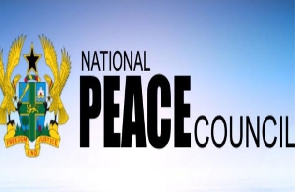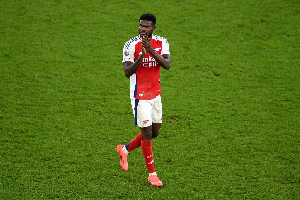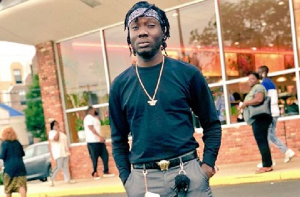The National Peace Council has called on the government to develop comprehensive and sustainable programmes for the youth to be productive and help resolve any form of violence in the country.
The Council believes that the absence of a coherent, pragmatic and sustainable socio-economic policy for the youth in terms of job creation, access to education, and their social welfare makes them fall prey to politicians to perpetrate violence before, during, and after elections.
The Right Reverend Samuel Kofi Osabutey, the Chairperson, Greater Accra Regional Peace Council for Youth Ambassadors for Conflict Prevention ahead of 2020 Elections said this on Thursday at a dialogue session with youth in selected "hotspots" on conflict prevention, before, during, and after 2020 elections, funded by the Commonwealth Secretariat.
The programme brought together peace ambassadors in Nima and Ashaiman community to be trained to educate their constituents on the need to ensure peace ahead of the December polls.
He called for continuous stakeholder dialogue to address issues of insecurity in the country due to mistrust from the public on political leaders and the security agencies.
In 2019, there were about 1.2 billion youth aged 15-24 years constituting 16% of the global population.
Ghana has a young age structure with 57% under the age of 25, which has serious socio-political, cultural and economic implications for the country.
He said the youth of the country had great potential when given the needed attention and investment, stressing that the future of the country could be jeopardized if the youth are allowed to go astray with disregard to one another's socio-cultural differences.
The establishment Act 818 of the National Peace Council mandates the Council in Section Two to facilitate and develop mechanisms for conflict prevention, management, resolution and to build sustainable peace in the country.
The Act also mandates the Council to increase awareness on the use of non-violent strategies to prevent, manage, and resolve conflict and build sustainable peace.
Rt Rev Osabutey stated that since its inception, the Council had played a key role in conflict prevention and management and ensuring peaceful elections in the country, especially in the 2008, 2012 and 2016 elections.
He advised the youth to exhibit a high sense of tolerance, trust, mediation, diversity, dignity, honesty and respect for one another since these values were the cornerstones for peacebuilding.
"I urge all of us to have respect for divergence views to enhance our national development and an uncompromising commitment to peaceful co-existence and peaceful resolutions to conflicts and disputes," he said.
He stated that it was not only the prerogative of the government to ensure that there was peaceful co-existence among all, but a collective responsibility of all well-meaning Ghanaians to actively contribute to the peace agenda of the country.
Dr Enyonam Kudonoo, a Senior Lecturer, Ashesi University advised the youth not to be used by any politician to cause mayhem in the lead up to the elections.
"Do not allow anybody to use you to disrupt the peace of the country in serving their parochial interests but be resolute and say no such tendencies," he said.
She encouraged them to add value to their lives and not be brainwashed by material offers to indulge in acts that would destabilise the enviable peace of the country.
The participants pledged their commitment to becoming agents of change in sanitising the youth for peaceful elections.
General News of Friday, 6 November 2020
Source: GNA

















